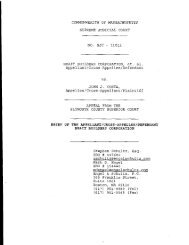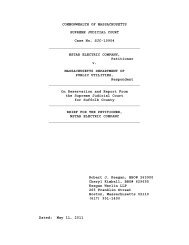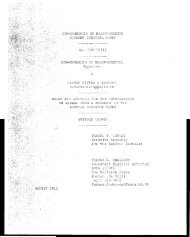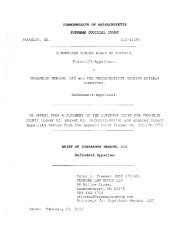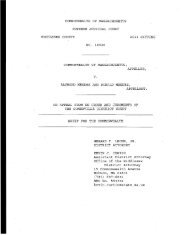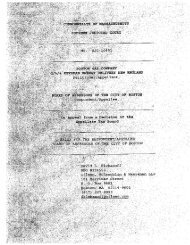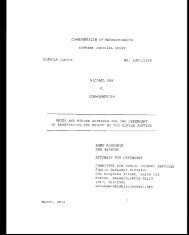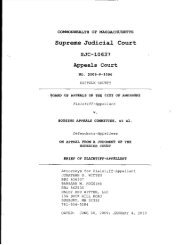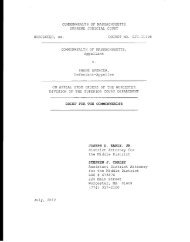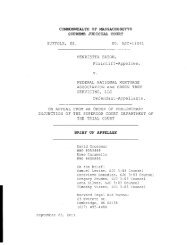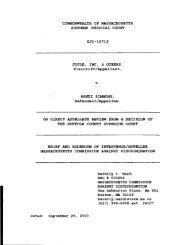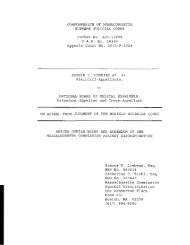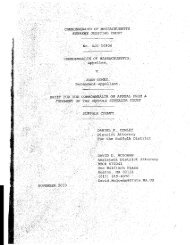Appellant McCowen Brief - Mass Cases
Appellant McCowen Brief - Mass Cases
Appellant McCowen Brief - Mass Cases
You also want an ePaper? Increase the reach of your titles
YUMPU automatically turns print PDFs into web optimized ePapers that Google loves.
justice system was the fair and balanced prosecution of<br />
the accused.<br />
Accordingly, "suppression of evidence favorable to an<br />
accused upon request violates due process where the<br />
evidence is material either to guilt or punishment,<br />
irrespective of the good faith or bad faith of the<br />
prosecution." Brady, 373 U.S. at 87. Even in the absence<br />
of a discovery request by the defendant, the prosecution<br />
must disclose any and all obviously materially exculpatory<br />
information in its possession. United States v. Agurs,<br />
427 U.S. 97, 108 (1976). Evidence is materially<br />
exculpatory if there is a reasonable probability that its<br />
disclosure to the defendant would have resulted in a<br />
different outcome. united States v. Bagley, 473 U.S. 667,<br />
682 (1985).<br />
Maasachusetts courts have adopted a broader<br />
definition of the disclosure obligations than those<br />
inherent in the Brady/Bagley standard. In <strong>Mass</strong>ac:husetts,<br />
these obligations extend to "all evidence which tends to<br />
negate the guilt of the accused or, stated<br />
affirmatively, supporting the innocence of the<br />
defendant." Commonwealth v. Healey, 438 <strong>Mass</strong>. 672, 679<br />
(2003). A finding of a Brady violation is akin to<br />
finding "an appearance that justice may not have been<br />
done", <strong>Mass</strong>. R. Crim. P. 30, thus, warranting a new<br />
-49-



